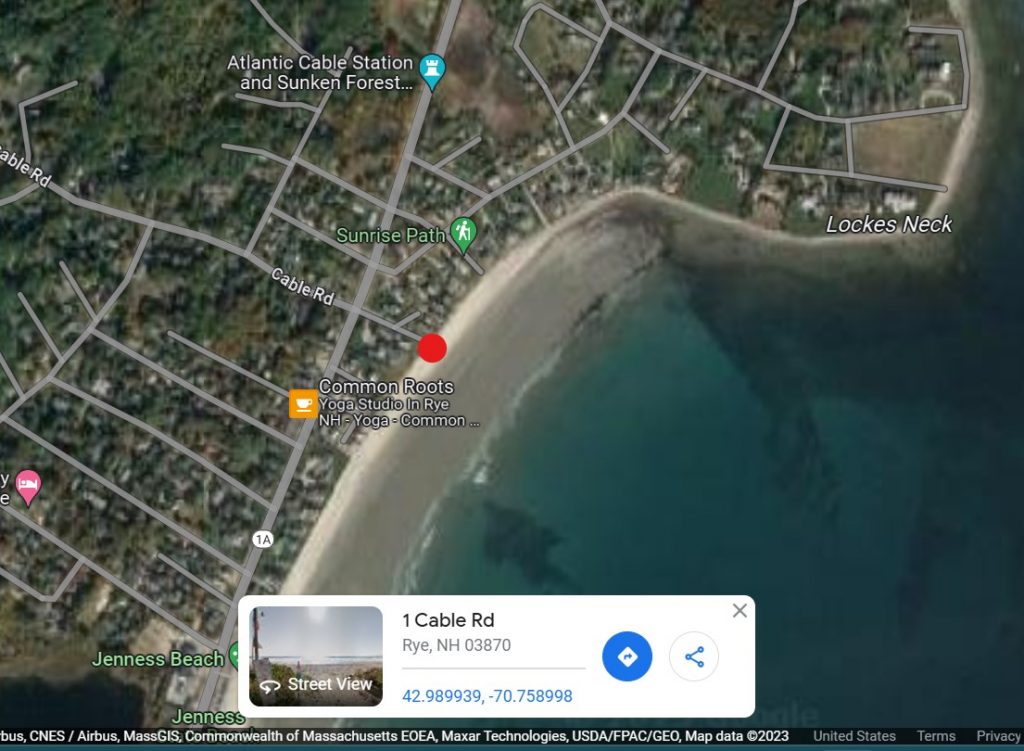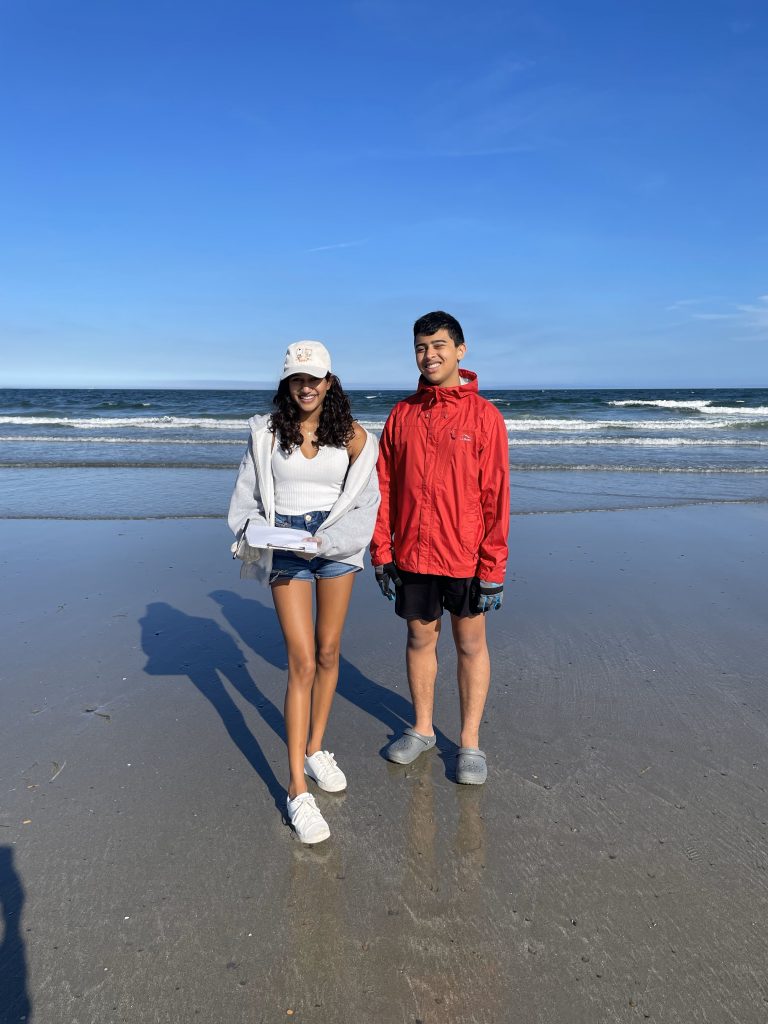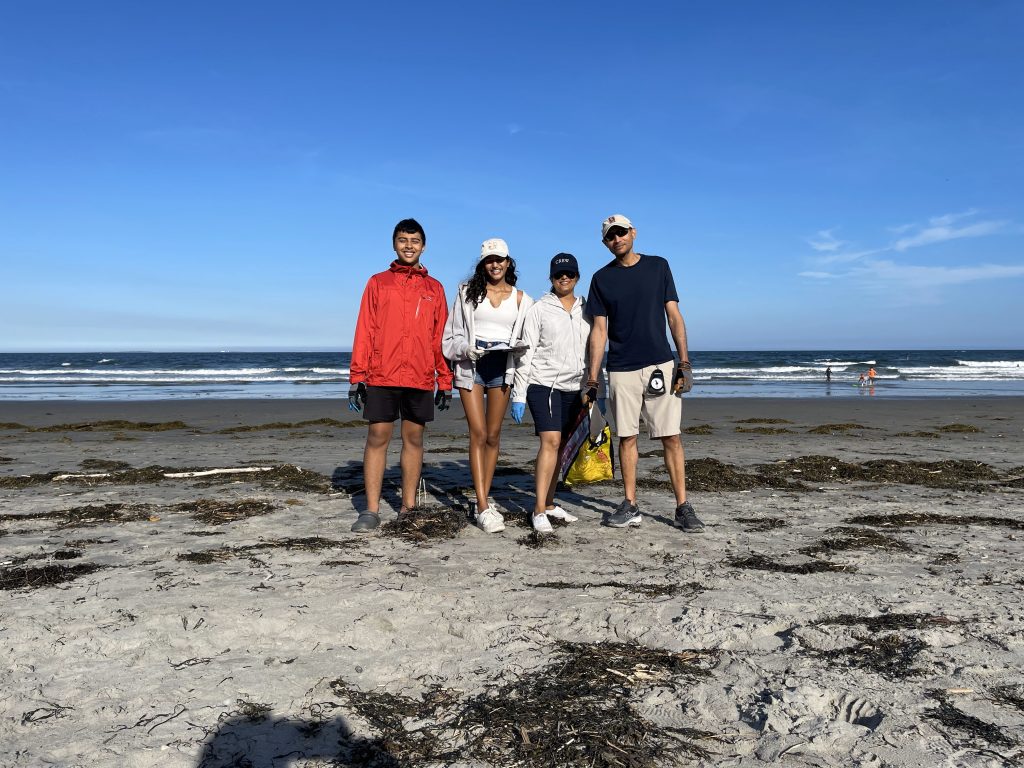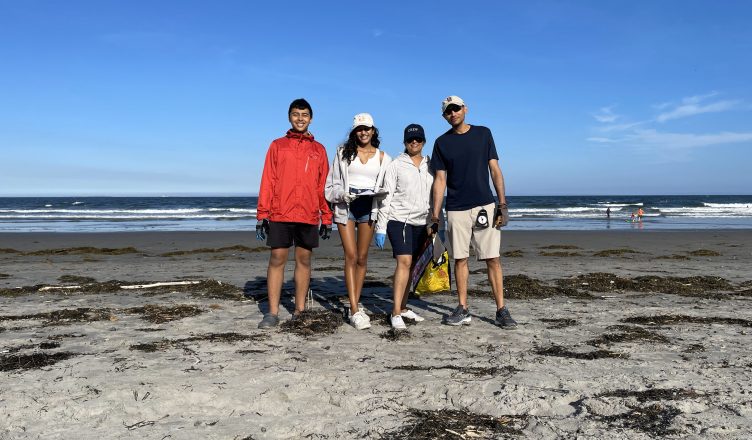The Magnificant Magnus Family at Cable Beach
Sidney is a rising senior at St. Paul’s School in Concord, New Hampshire. She has always been interested in marine life and conservation and wanted to be a marine biologist when she was younger. Sidney’s parents and extended family are from the Caribbean, and she says some of her favorite childhood memories are of visits to beaches, nature preserves, and marine animal rehabilitation facilities. During the pandemic, visits to New England beaches were a source of great joy and renewal for Sidney and her family. They enjoyed many trips out to learn about the region’s marine animals, fishing, and lobster farming.
What beach have you adopted, and when did you adopt it?
In the summer of 2022, my brother, my parents, and I adopted Cable Beach in Rye, New Hampshire. We chose this beach because it was an hour away from my home and school. We love the coastline of New Hampshire and feel fortunate to be close to the ocean. As we have learned more about pollution, climate change, and the impact volunteers can have, even on a small scale, my family and I felt strongly that we needed to learn more and find a way to do our part. It was a short stretch of beach that felt manageable for my family and me to visit and maintain. We look forward to the afternoons each month spent working together.

Why did you choose to adopt a beach through Blue Ocean Society?
Two summers ago, on our last visit to a Maine beach, we frequented regularly during the pandemic, I was distressed to see plastic waste and fish net debris on the shore. My family and I spent time picking up as much of the litter as possible, but we realized we needed more resources. The Blue Ocean Society felt like a perfect way to make a difference, and they were friendly and straightforward to work with. They offered to meet and give us an orientation, invited us to a presentation, and regularly communicated with us. It has been gratifying to get proficient in identifying the litter we collect and recording it in the Marine Debris tracker for international data collection.
What item(s) do you find the most, and is it what you expected?
The item we found the most was rope, which differed from what I expected. I expected to pick up more litter and plastic, and while there is much litter, small pieces of rope are often tangled in seaweed. I had not realized how much the fishing and lobster industry impacted our beaches and wildlife.

Have there been items you’ve found that you weren’t expecting to see a lot of?
The quantity of unidentifiable micro-plastic and small foam pieces, often trapped in seaweed or partially buried in the sand, was unexpected. I was unaware of how plastics degrade over time and get introduced into the food chains. I can now easily spot the colorful pieces 5 mm or less in the sand or trapped in the seaweed. I never noticed these before.
What is the craziest/weirdest thing you’ve found?
We have never encountered anything particularly crazy. It was cool to see an entire lobster trap washed up.
Do you have a fun cleanup story to share?
During our cleanup in January, small blue pieces of plastic streamer confetti were everywhere on the beach. We initially found them on one section of the beach and assumed it was just in a cluster, but we found more pieces during the rest of our cleanup, even on the opposite side of the beach.
Has adopting this beach changed your behavior?
I am more aware of litter and debris that I see everywhere, especially when I am at beaches. I can spot small pieces of rope and plastic easily out of a mass of seaweed and have learned to differentiate the rope and fishing line from types of seagrasses. I am more mindful about how much plastic I use, where I dispose of my trash, recycling whenever possible, and wearing my fleece more often before washing them.

Is there anything else you’d like to share in the blog post?
This year of volunteering through the BOS adopt-a beach program has been an extremely valuable experience for my family and me. Through the monthly cleanups, the educational experiences, informational emails, and our research, we are now more aware of how local actions can have global impacts (Hooksett Disks) and the role we all have to play in protecting the ecosystems and environments that we have the privilege to enjoy.
Get Involved!
Click here to learn more about our Adopt-a-Beach program! You can view which beaches are available for adoption, read our AAB Handbook, and fill out an adoption application.
Are you interested in joining a beach cleanup before you commit to adopting? We’ll also be adding a few public cleanups to our Public Cleanup Bulletin within the next few weeks for New Hampshire Coastal Cleanup, so be sure to keep your eyes out for that!






